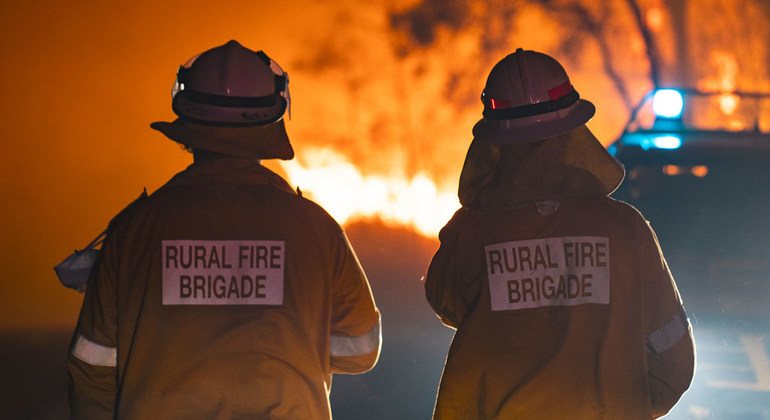While acknowledging “the selflessness, professionalism and dedication” of first responders and all organizations working on the ground, UNICEF issued a statement on Monday extending its condolences to the children and families affected by the fires that continue to devastate the country.
Flagging its experience in providing crucial long-term support to children across the world through the three stages of relief, recovery and rehabilitation, UNICEF expressed it “very real desire” to assist Australia.
“UNICEF has significant expertise and experience globally in responding to emergencies, including natural disasters”, the statement said. “From decades of work with millions of people around the world, we know that children are always among the most vulnerable in circumstances such as these”.
In many situations, UNICEF added that climate change is making scenarios “worse and more enduring”.
Looking out for children
“Our recent experience in working with children and young people affected by the drought in New South Wales brings this current bushfire crisis into sharp focus and that is why UNICEF Australia is currently prioritizing internal resources, speaking with partners and other agencies to ensure that we can continue to be a back-up to first-responders and committing support where possible to the immediate and long term needs of children”, the statement spelled out.
UNICEF upheld the vital importance that children who have lived through disasters “return to normal life as quickly as possible”, which is best done by resuming their education.
“In the longer term it is also vital that the views of children are taken into consideration when decisions are being made”, which is why UNICEF Australia has been in discussion with the Fund’s international offices, and other local organizations and government agencies “to plan the provision of our support and expertise into the future”.
Planning ahead
As the situation continues to unfold, needs are yet to be fully determined. While a needs assessment is pending, key initiatives are likely to include assisting relief partners, said UNICEF, so that affected children may to return to school, provide them with psychosocial support and convene forums to ensure children’s voices shape future responses.
Pointing out that in addition to those children who have been directly affected, the agency is also highly concerned for those children witnessing traumatic events relating to the bushfires through media and social media.
We encourage all parents to consider talking to their children about what is happening and to take steps to make their children feel safe – UNICEF
“We encourage all parents to consider talking to their children about what is happening and to take steps to make their children feel safe”, UNICEF stated.
On top of the toll taken on human lives and the destruction of thousands of homes, the months-long blazes have also killed millions of animals.
Acknowledging that it may be a difficult time for some of its regular supporters directly affected or living in or near bushfire-affected areas, UNICEF Australia encouraged them to suspend donations to ensure they have the means to provide for their families.
“The recovery process from such an unprecedented disaster will take a long time and UNICEF Australia calls for more child-centred responses and for the needs of children to continue to be prioritized”, the statement continued.
As disaster response and planning should include children’s views and experiences, UNICEF Australia “intends to ensure that children who have been affected by this disaster are consulted as a consequence, and their views and opinions taken to decision makers”.




